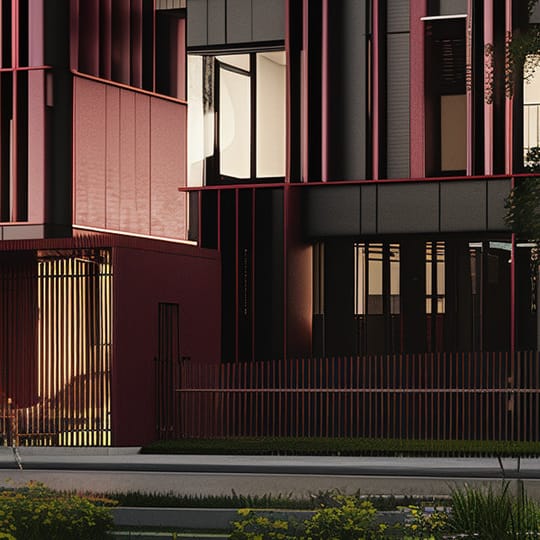



Respondents were asked if and how they are using AI for design, the challenges they are facing with today’s AI tools, what type of regulation is needed for the future, and how they feel AI will affect their profession.
Most participants work in a firm of 20 employees or less, practicing architecture, interior design, master planning, or landscape design. The United States was the most represented location (35%), with the majority of respondents spread across 50 different countries.

Over two-thirds of respondents are either currently using AI tools or plan to in the future.
Yet 60% of respondents have not received any formal training and an additional 18% indicate that they plan to receive training. This illustrates the widespread experimentation and self-learning among those currently using AI.
For those using AI tools, the benefits are clear. Improved efficiency, creativity, and new creative workflows unlocked.
But just over a third cited integration issues with existing software, a lack of time to test and implement, and a lack of suitable training resources as challenges they’ve faced in adopting AI tools for architectural projects.


Regardless of whether or not they’re currently using AI, a large majority of respondents (74%) agree that ethical guidelines should be established for its application in architecture.
These guidelines could include intellectual property protections, quality assurance procedures, and disclosure of AI use.


Responses to The State of AI in Architecture Survey were collected from January 29 - February 09, 2024. 1,227 respondents from +70 countries participated. Download the report to access the full analysis.
Loading content that can be large paragaph of text, or not. Sometimes it's a consent text, sometimes it's a legal disclaimer, but most forms have some kind of prelude to the submit button...